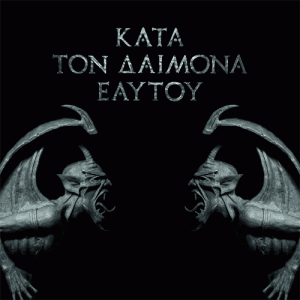
As I read about how Fen takes most of their musical inspiration from the bleak Fen region of eastern England, I was reminded of certain lines from the poem Horses on the Camargue by Roy Campbell: "In the grey wastes of dread, /The haunt of shattered gulls where nothing moves…” The music on Dustwalker, Fen’s second full-length release, certainly evokes desolate images such as those in the poem extracts. Having heard some of Fen’s early material and been impressed, I was very interested to hear their latest work.
Fen blends progressive rock, post-rock and black metal and atmospherics. A problem with musically meandering subgenres such as progressive and postsomething is often the balance of musical exploration and overdrawn musical pomp. Fen starts out well in this balancing act with Consequence. The track begins with rasping vocals and melancholy guitars, and moves into a passage of echoing riffs. The track contains a great bassline. Ghostly chants add to the bleak atmosphere created by the instruments. Hands of Dust is a slower number, with echoing, droning clean guitar riffs. The drums create an interesting counter melody. A quiet interlude with soft guitars and vocal harmonies adds interest. There are some interesting dynamic changes in this track, and fuzzy-sounding guitars and blastbeats come into play as well. Fen manage to avoid outstaying their welcome, but things fall apart a bit from tracks 3 to 5.
Spectre drags on in the middle section, despite a good first half and coda. This track has an interesting 'country' sound in the first half. Reflections, like the previous track, has some good moments but lingers too long. Wolf Sun has a faster tempo and some good fuzzy riffs. Slower doesn't mean boring, but this section of the album suffers from an ability to sustain the listener's interest with consistently engaging riffs and song structures.
The Black Sound and Walking the Crowpath are enjoyable tracks, thus ending the album on a good note. The thunderous drums and plaintive guitar riffs in the former contrast well with the soft part of the track, which contains guitar riffs that are even more plaintive. The bass has a warm tone, and goes very well with the bubbling guitar riffs on top of it. Crow cries introduce Walking the Crowpath, which contains many contrasting elements. There are quiet acoustic riffs, fuzzed-out electric guitar riffs, mid-tempo drum fills and furious blastbeats, and clean vocals and anguished screams.
Dustwalker has good moments and good musical ideas, but overall it isn't one of the most engaging albums I've heard. I enjoyed previous Fen material more than I did this offering.
Personnel: Grungyn - vocals and bass
The Watcher - vocals lead guitars and acoustic guitars
Derwydd - drums
Web presence: http://www.facebook.com/fenofficial
http://www.myspace.com/fenband
http://www.last.fm/music/Fen

